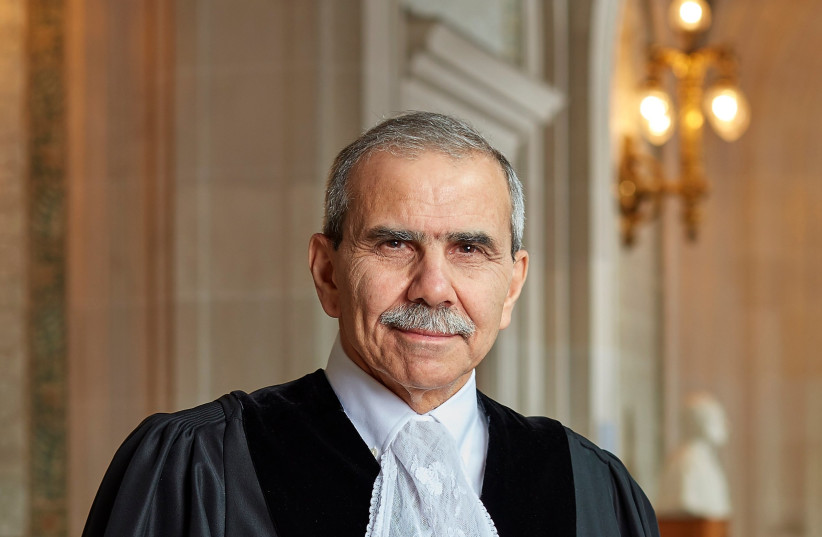Shortly after the Lebanese parliament elected General Joseph Aoun as president on Thursday, ending a deadlock that left the position vacant and the country rudderless for over two years, Foreign Minister Gideon Sa’ar joined the list of well-wishers from around the world with a congratulatory message posted on X/Twitter.
“I congratulate Lebanon upon the election of a new president following a lengthy political crisis,” he wrote. “I hope that this choice will contribute towards stability, a better future for Lebanon and its people, and to good neighborly relations.”
The election of Aoun is an event with far-reaching regional implications and immediate significance for Israel. The election of a Lebanese president not beholden to Hezbollah – and Aoun is not – is a reflection of the terrorist organization’s dramatically weakened position in the country following the pummeling it took during the war with Israel.
Aoun was backed heavily by the US and Saudi Arabia, and – tellingly – he said his first visit abroad would be to Riyadh.
Another indication of Hezbollah’s loss of clout came on Monday when Lebanon’s parliament showed caretaker prime minister Najib Mikati, Hezbollah’s candidate, the door and voted in his place as prime minister the president of the International Court of Justice, Nawaf Salam.


Salam presided over South Africa's case at the ICJ last year accusing Israel of genocide.
Political shifts
With the fall of Bashar al-Assad in December, the election of Aoun and Salam in Lebanon marks the second dramatic political shift in Israel’s neighborhood dynamics in less than two months.
Imagine Israel, Syria, and Lebanon as separate high-rise apartment buildings sharing the same crowded block. Not only have the heads of the tenant’s association in Israel’s neighboring buildings changed – with Abu Mohammed al-Julani replacing Assad in Syria’s building and the long-vacant chairs of Lebanon’s tenant association now being filled by Aoun and Salam – but the landlords behind them who wield the real power are in the process of shifting.
For years, Iran was in control of both “buildings.” Now, with Turkey asserting itself in Syria and Saudi Arabia gaining influence in Lebanon, efforts are underway to evict Iran altogether, and its dominance is receding fast.
Israel must now navigate relations with both the new heads of the tenant associations as well as the apartment’s new landlords. This will require some adjusting and policy fine-tuning.
Ironically, the situation in Syria – where Turkey is now emerging as a dominant player – might be more challenging for Israel than Lebanon, where Saudi Arabia has suddenly emerged as the main actor behind the scenes.
Why? Because Turkey’s President Recep Tayyip Erdogan is an Islamist extremely hostile toward Israel, while Saudi Arabia’s Crown Prince Mohammed bin Salman – especially in the era of US president-elect Donald Trump, who will be looking to expand the Abraham Accords – is less confrontational toward Israel than Erdogan.
Given the shifting neighborhood dynamics, Israel, as Sa’ar made clear in his post, has an interest in Aoun’s success. A Lebanon steered by Saudi Arabia is far preferable to one controlled by Iran.
This, however, places Jerusalem in a dilemma. Aoun has pledged to launch Lebanon into a “new era,” and both Israel and Saudi Arabia would like nothing more than for this era to be free of Hezbollah. The start of this power shift in Lebanon coincides with the approaching end of a 60-day ceasefire between Israel and Hezbollah.
At the end of the ceasefire, Hezbollah is supposed to have moved north of the Litani, Israel to have withdrawn beyond the Blue Line that demarcates its border with Lebanon, and the Lebanese Army, until now led by Aoun, was to have moved south and – together with the UN Interim Force in Lebanon — taken up positions in place of Hezbollah and regained sovereign control over the region.
That process is far from complete.
Israel's action inside Lebanon
Unlike in years past, however, Israel has taken action inside Lebanon to ensure that Hezbollah does not violate the ceasefire terms and, as such, has acted repeatedly throughout the country to keep it from rearming or positioning itself in southern Lebanon. It took action again on Sunday night.
And that is where the challenge deepens.
Hezbollah’s grip on Lebanon is slipping. Weakened militarily by Israel’s actions and politically by Aoun’s rise, Hezbollah’s diminished influence is a most welcome development.
But Israel’s next steps are fraught with risk – it must be careful about giving Hezbollah a pretense to regroup.
For decades, Hezbollah has justified its existence as a resistance movement against Israel’s occupation of Lebanese territory, a false narrative that granted it political legitimacy. If Israel fails to withdraw at the ceasefire’s conclusion, Hezbollah will seize the opportunity to reframe itself as a defender of Lebanon once again – a path to rebuilding its strength.
But Israel cannot withdraw if the Lebanese Army has not taken control of southern Lebanon.
Aoun was elected with the support of the US, Saudi Arabia, and France. Now, with just two weeks remaining before the ceasefire expires, diplomatic pressure is urgently needed to ensure he mobilizes the Lebanese Army to reclaim the south.
Barring this, which is unlikely in the remaining days, Aoun’s friends and patrons need to convince him that it is for the good of Lebanon that the ceasefire is extended.
The equation is simple: Israel won’t withdraw until Hezbollah is no longer present as a military force in southern Lebanon.
If Hezbollah – which hasn’t fully moved north of the Litani – resumes firing missiles and rockets at Israel in response to Israel’s incomplete withdrawal, Lebanon will bear the cost of the renewed fighting, and Aoun’s pledge to usher in a new era will ring hollow.
